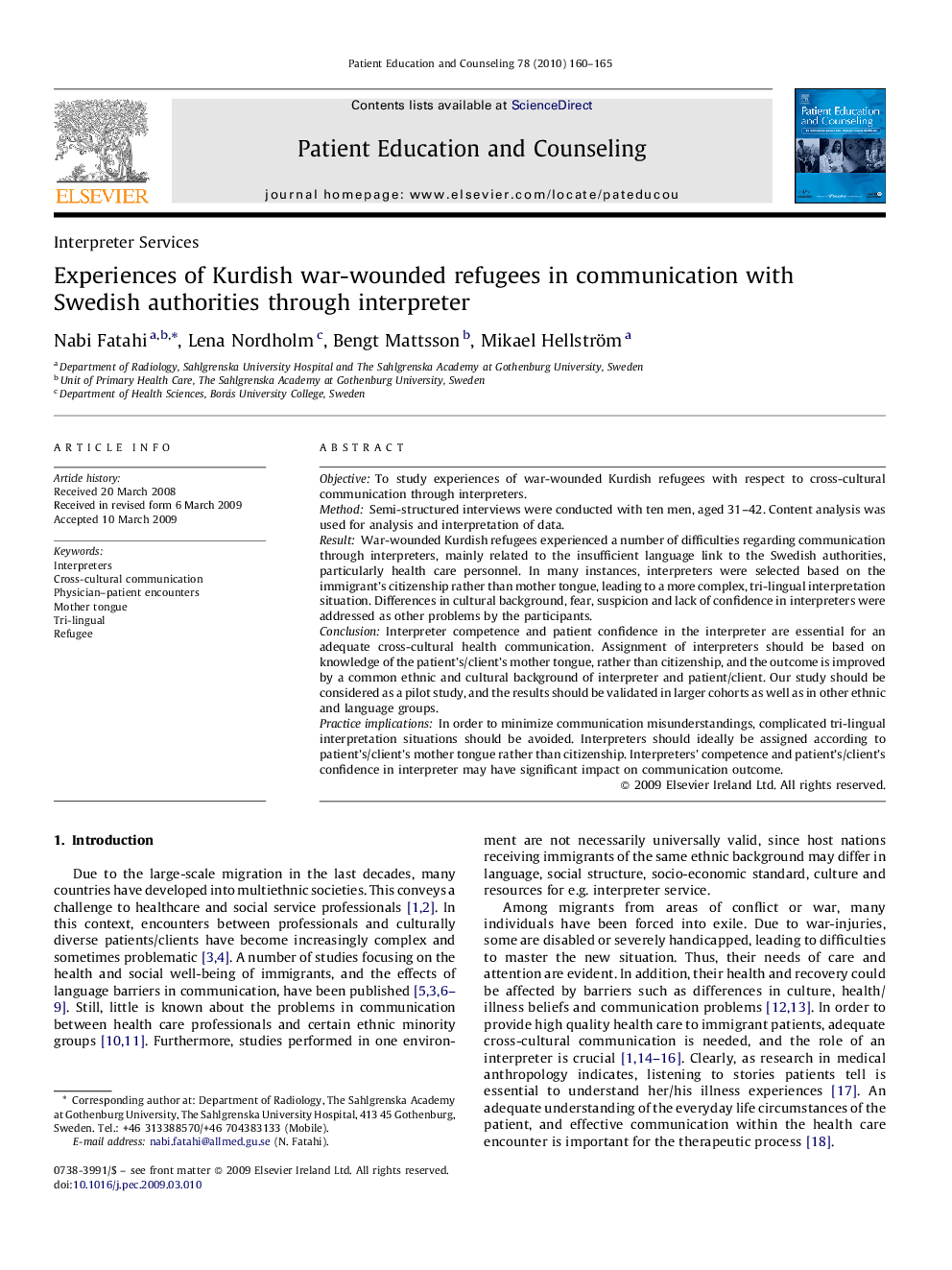| Article ID | Journal | Published Year | Pages | File Type |
|---|---|---|---|---|
| 3815713 | Patient Education and Counseling | 2010 | 6 Pages |
ObjectiveTo study experiences of war-wounded Kurdish refugees with respect to cross-cultural communication through interpreters.MethodSemi-structured interviews were conducted with ten men, aged 31–42. Content analysis was used for analysis and interpretation of data.ResultWar-wounded Kurdish refugees experienced a number of difficulties regarding communication through interpreters, mainly related to the insufficient language link to the Swedish authorities, particularly health care personnel. In many instances, interpreters were selected based on the immigrant's citizenship rather than mother tongue, leading to a more complex, tri-lingual interpretation situation. Differences in cultural background, fear, suspicion and lack of confidence in interpreters were addressed as other problems by the participants.ConclusionInterpreter competence and patient confidence in the interpreter are essential for an adequate cross-cultural health communication. Assignment of interpreters should be based on knowledge of the patient's/client's mother tongue, rather than citizenship, and the outcome is improved by a common ethnic and cultural background of interpreter and patient/client. Our study should be considered as a pilot study, and the results should be validated in larger cohorts as well as in other ethnic and language groups.Practice implicationsIn order to minimize communication misunderstandings, complicated tri-lingual interpretation situations should be avoided. Interpreters should ideally be assigned according to patient's/client's mother tongue rather than citizenship. Interpreters’ competence and patient's/client's confidence in interpreter may have significant impact on communication outcome.
